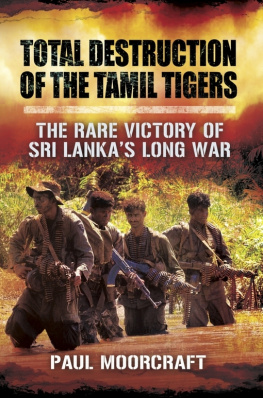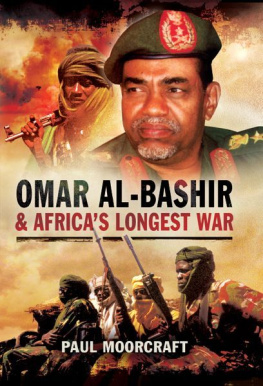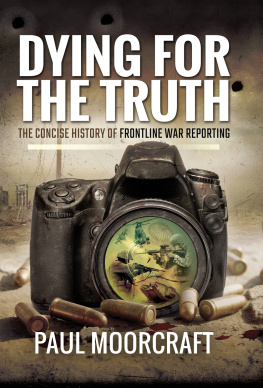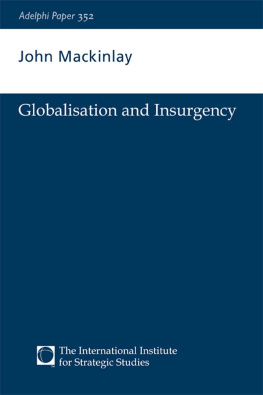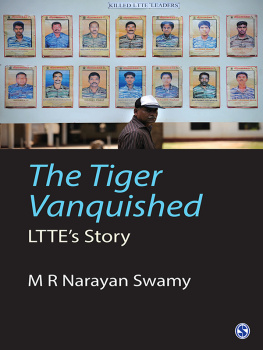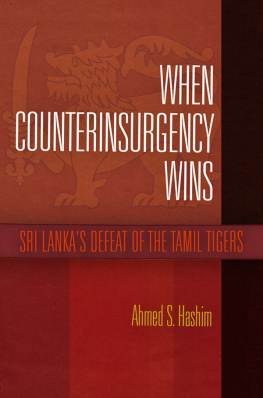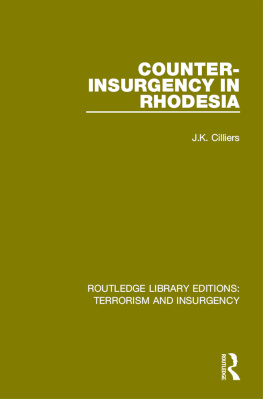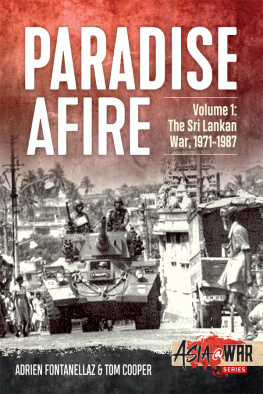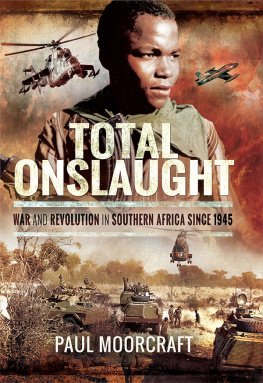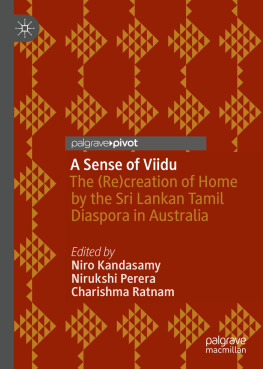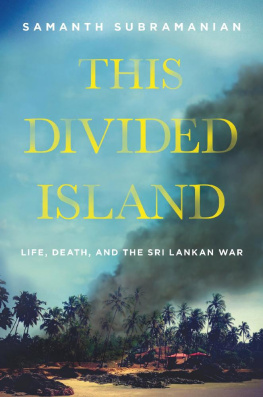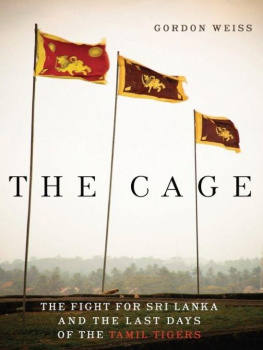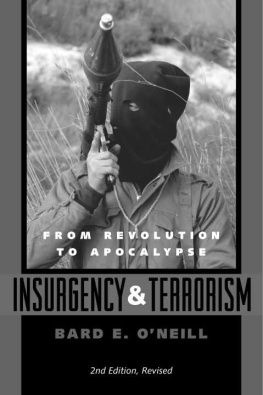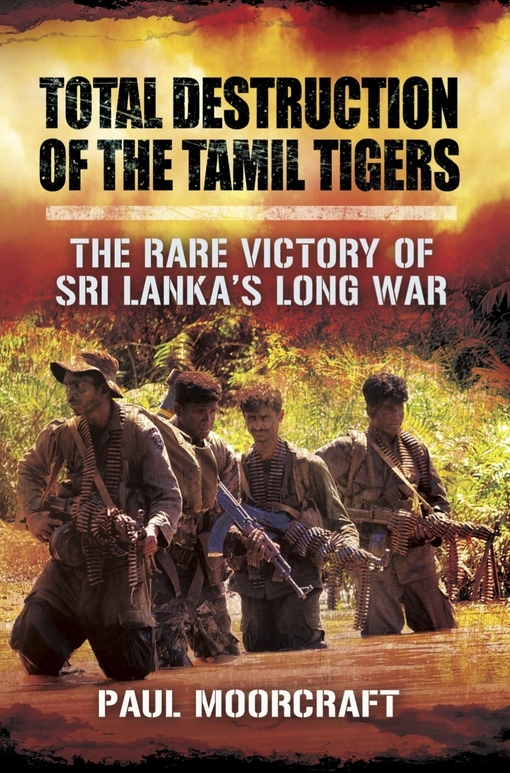Professor Paul Moorcraft has worked extensively in Asia as a foreign correspondent, lecturer and author. He covered wars and political conflicts in Cambodia, Vietnam, Nepal, Pakistan and Afghanistan, as well as reporting on large countries such as China and producing TV documentaries in small ones, for example the Maldives. In Sri Lanka he travelled throughout the war zones in the north and east of the island. He has interviewed many of the senior political and military leaders on both sides of the war, as well as foreign diplomats, members of non-government organizations and journalists.
The former editor of a range of specialist security and foreign policy magazines, Professor Moorcraft also worked for Western TV networks as a freelance producer/war correspondent. He has also lectured full-time in journalism, politics and international relations at ten major universities in the US, Britain, Southern Africa and Australasia He was a Distinguished Radford Visiting Professor in Journalism at Baylor University, Texas. He has worked in 30 war zones in Africa, the Middle East and the Balkans, often with irregular forces, most recently in Afghanistan, Iraq, Palestine/Israel, and in the various regional conflicts in Sudan. He headed a 50-strong British observer mission in Sudan for the national elections in 2010, as well as reporting on the 2011 referendum in the now Republic of South Sudan.
Dr Paul Moorcraft is a former senior instructor at the Royal Military Academy, Sandhurst, and the UK Joint Services Command and Staff College. He worked in Corporate Communications in the Ministry of Defence in Whitehall. In 2003 he was recalled to government service in Whitehall and Iraq.
He is the author of a wide range of books on military history, politics, travel and crime, as well as being an award-winning novelist. Paul Moorcraft is a regular contributor to British, US and South African newspapers (with frequent columns across the political spectrum from the Washington Times to the UK Guardian as well as writing for 35 years for his home-town newspaper, the Cardiff-based Western Mail, and temporary home, Johannesburg, for Business Day for the last five years). He also toils as a broadcaster and pundit on BBC TV and radio (for BBC Radio Wales for 35 years) and more recently Sky and Al-Jazeera. He has produced a number of TV news documentaries for Britains Channel Four News.
His co-authored study, with Professor Phil Taylor, Shooting the Messenger: The Politics of War Reporting, was published in 2008; the updated paperback in 2011. Dr Moorcraft also co-authored the much-acclaimed The Rhodesian War: A Military History in 2008 (paperback 2011). This was followed by Mugabes War Machine in 2011. His autobiographical Inside the Danger Zones: Travels to Arresting Places came out in 2010.
Dr Moorcraft is the director of the Centre for Foreign Policy Analysis, London, as well as being a Visiting Professor at Cardiff Universitys School of Journalism, Media and Cultural Studies.
Select Bibliography
Much of this book is based on lengthy interviews and discussions with many of the key players in the drama. But I have listed some of the more accessible texts for English-speaking readers. The most immediately useful and up-to-date are C.A. Chandrapremas book (details below) which is a pro-government account with excellent access, and Gordon Weisss book which is a well-written outsiders version and critical of the Sri Lankan government.
Balasuriya, Mahinda, The Rise and Fall of the LTTE (Asian Network on Conflict Research, Colombo, 2011).
Bandarange, Asoka, The Separatist Conflict in Sri Lanka (Vijatha Yapa Publications, Colombo, 2009).
Business Today (Colombo), Defeating Terrorism, July 2011.
Chandraprema, C. A., Gtas War: The Crushing of Tamil Tiger Terrorism in Sri Lanka (Ranjan Wijeratne Foundation, Colombo, 2012).
Das, Gautam and M. K. Gupta-Ray, Sri Lanka Misadventure: Indias Military Peace-Keeping Campaign 1987 1990 (Vijitha Yapa Publications, Colombo, no date).
de Mel, Neloufer, Militarizing Sri Lanka: Popular Culture, Memory and Narrative in the Armed Conflict (Sage, New Delhi, 2007).
The Economist, My Brothers Keepers, 11 February 2012.
Fish, Tim, Sri Lanka learns to counter Sea Tigers swarm tactics, Janes Navy International, March 2009.
Gooneratne, John, A Decade of Confrontation: Sri Lanka and India in the 1980s (Stamford Lake, Pannipitiya, 2000).
, Negotiating with the Tigers (LTTE) 2002 2005 (Stamford Lake, Pannipitiya, 2007).
Gunaratne, Merril, Cop in the Crossfire (2011, probably self-published in Sri Lanka).
Holt, John Clifford, (Ed.) The Sri Lanka Reader: History, Culture, Politics (Duke University Press, Durham, 2011).
Human Rights Watch Report, Funding the Final War: Intimidation and Extortion in the Tamil Diaspora (HRW, New York, 2006).
Povlock, Paul A., Guerrilla War at Sea: The Sri Lankan Civil War, Small Wars Journal, 9 September 2011.
Rupesinghe, Kumar (Ed.) Negotiating Peace in Sri Lanka, Vol. One (Foundation for Co-existence, Colombo, 2006).
Shashikumar, V K., Lessons from the War in Sri Lanka, Indian Defence Review, 3 October 2009.
Singh, Ajit Kumar, Endgame in Sri Lanka, Faultlines, January 2011.
Smith, Neil A., Understanding Sri Lankas Defeat of the Tamil Tigers, JFQ, Issue 59, 4th Quarter, 2010.
Solnes, Jon Oskar, A Powderkeg in Paradise: Lost Opportunity for Peace in Sri Lanka, (Konark, Delhi, 2010).
Solomon, John, and B. C. Tan, Feeding the Tiger How Sri Lankan Insurgents Fund their War, Janes Intelligence Review, 1 August 2007.
Swamy, M. R. Narayan, Inside an Elusive Mind: Prabhakaran (Vijitha Yapa, Colombo, 2008).
, Tigers of Lanka (Vijitha Yapa, Colombo, 2008).
United Nations, Report of the Secretary-Generals Panel of Experts on Accountability in Sri Lanka, 31 March 2011.
University Teachers for Human Rights (Sri Lanka), Let Them Speak: Truth About Sri Lankas Victims of War, Special report No. 34, 13 December 2009.
Weiss, Gordon, The Cage: The Fight for Sri Lanka and the Last Days of the Tamil Tigers (Bodley Head, London, 2011).
Wijewardana, Don, How the LTTE Lost the Eelam War (Stamford Lake, Pannipitiya, 2010).
Notes
See Latheef Farook, Nobodys People: The Forgotten Plight of Sri Lankas Muslims (South Asia News Agency, Colombo, 2009).
For a brief but thoughtful analysis, see A. Jeyaratnam Wilson, The Militarisation of Tamil Youth in John Clifford Holt, (Ed.) The Sri Lanka Reader: History, Culture, Politics (Duke University Press, Durham, 2011).
Gordon Weiss, The Cage: The Fight for Sri Lanka and the Last Days of the Tamil Tigers, (Bodley Head, London, 2011) p.57.
Some of the following military experts quotes are extracted from a very useful summary of the intervention: Gautam Das and M. K. Gupta-Ray, Sri Lanka Misadventure: Indias Military Peace-Keeping Campaign 1987 1990 (Vijitha Yapa Publications, Colombo, no date).
Norman Dixon, On the Psychology of Military Incompetence, various editions, originally published in 1976.
Sri Lanka Misadventure, op. cit., p.17.
Ibid., p.305.
For a forensic analysis of the LTTE conspiracy, see D. R. Kaarthikeyan and Radhavinod Raju, The Rajiv Gandhi Assassination: The Investigation (New Dawn Press, Slough, 2004).
For an excellent summary of the ground fighting, see C. A. Chandraprema, Gtas War: The Crushing of Tamil Tiger Terrorism in Sri Lanka (Ranjan Wijeratne Foundation, Colombo, 2012). The detail of the Mankulam fighting can be found on pp.92 4.

